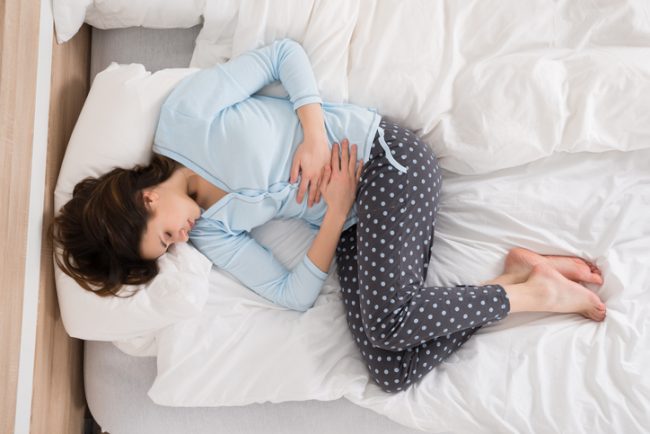Irritable Bowel Syndrome, commonly referred to as IBS, is among the leading digestive concerns of individuals everywhere and can affect anyone at any age. Ranging from symptoms such as gas, bloating, indigestion, slow digestion, constipation, diarrhea, food sensitivities and a nervous stomach, IBS has a range of symptoms and affects everyone differently.
There are no current cures for IBS, nor is there any permanent treatment for IBS sufferers. Unfortunately, that means that IBS interferes with what are supposed to be life’s greatest experiences, including vacation.
How Vacation Acts as an IBS Trigger
Vacations should be enjoyable, relaxing experiences, but for anyone with IBS, traveling, in general, can be anything but fun. IBS occurs more often in times of stress or change because the nervous system directly affects the digestive tract. (However, symptoms can occur at any time, even without a trigger at all.)
Traveling upsets the normal flow of a person’s digestive tract due to inconsistent eating patterns, longer times sitting in the car or plane (and therefore, a lack of movement), exposure to different bacteria in the environment and changes in sleeping schedule. All of these things can be enough to set off a range of IBS symptoms that leave sufferers uncomfortable—or worse—while traveling.
How to Manage IBS on Vacation
Certain medications are available for IBS sufferers to help manage symptoms like diarrhea and constipation, but there are also some natural ways to manage symptoms.
Here are 5 must-know tips for dealing with IBS while traveling that are extremely effective.
1. Take a Shelf-Stable Probiotic Daily (or even Twice Daily)
Shelf-stable probiotics can be a lifesaver when you’re traveling and don’t always have access to a cooler or refrigerator to keep your probiotics in. Probiotics help balance out the digestive tract, and certain strains of beneficial bacteria in probiotics have been especially helpful for treating IBS symptoms, including a nervous stomach, constipation, and diarrhea; the key is finding the right one for you.
Generally, a probiotic with a mixture of the strains Lactobacillus and Bifidobacteria are great for fighting general digestive upset and can help relieve constipation, especially for those with IBS-C (IBS with Constipation). Renew Life probiotic with 30 billion C.F.U. (colony forming units) contains both strains and is also shelf-stable.
If you suffer more from IBS-D (IBS with Diarrhea), look for the strain S. boulardii, which is a beneficial yeast that fights diarrhea and helps protect the lining of the gut. Jarrow Formulas Saccharomyces Boulardii plus MOS is room-temperature-stable, so you can take it on-the-go.
If you need a shelf-stable product with all of these stains, try Garden of Life Primal Defense.
Whatever probiotic product you choose, be sure to follow the suggested use noted on the bottle. It might also be helpful to test out any new product at least a month in advance, so you know it will work while you’re traveling.
2. Take a Walk Every Morning
Walking is one of the best ways to regulate your system and relieve the body of excessive gas that can come from sitting too long; it can also help relieve symptoms from erratic nerves associated with traveling. Walking is not only relaxing, but it also gets the entire digestive tract moving.
Try taking a 30-minute walk every single morning to set your system for the entire day. If you can do more, great! If not, make it a goal to get up and move every single day to start; you’ll be glad you did!
3. Eat Familiar Foods
It can be so tempting to indulge in all the finest foods at your favorite travel destinations, but remember, it’s much better to stick with safe options that keep you feeling well than to test your body and trigger IBS symptoms.
For most people, the worst triggers for IBS include high-fat foods (especially greasy foods) because they take longer to digest and sit in the stomach, stalling the delay of the digestion. Second, they are also acidic and can lead to inflammation. Other triggers include raw fruits and vegetables (at large amounts), too much sugar (which can trigger diarrhea), and a lack of fiber—or eating too much of the wrong kind of fiber for your body.
In general, it’s best to stick with foods you know your body can handle, and most IBS-sufffers will know what those foods are for them. Foods that tend to work well are sweet potatoes, bananas, sugar-free instant oatmeal, rice, quinoa flakes and low-fiber berries, such as strawberries. Vegetables can be tricky, so stick with whatever ones work for you and aim to eat them cooked versus raw. If you suffer heavily from constipation, you can also incorporate wheat bran, dried fruits like raisins, fiber crackers, regularity tea, and fruits like apples and pears into your routine.
It may also be helpful to take a soluble fiber supplement each day while you’re away. One of the most natural options available is acacia fiber, which comes from the acacia plant. You can mix the fiber powder in food or you can take it with water, but be sure to drink enough fluids if you take a fiber supplement. Soluble fiber has been found to coat the stomach and regulate symptoms of IBS, especially diarrhea.
4. Get Enough Sleep
Sleep also helps regulate the body in various ways that can help alleviate IBS symptoms. One of the most important ways it does this is that sleep regulates hormones, including cortisol, that helps manage the stress associated with IBS symptoms.
If you have a hard time sleeping on vacation, consider taking a magnesium citrate supplement before bed (which can also help with constipation), or take melatonin if you suffer more from jetlag-related symptoms. Other natural options to help you wind down are a GABA supplement, which is an amino acid that aids in relaxation, along with lavender oil that you can mix with lotion and apply on your body before bed.
Gentle stretching or mild yoga before bed can also help you wind down at night and acts in a similar way as walking does for IBS-related symptoms.
5. Be Mindful of Your Triggers and Honor Them
One of the most important things you can do on vacation is to be mindful of your personal IBS triggers (which differ for everyone), and do whatever you have to do to manage them, even if that goes against the grain of what others are doing. For instance, if you’re traveling mates are all drinking and staying out all night, and you know that will act as a trigger, graciously relieve yourself and avoid a night of alcohol so you can get in bed at a decent time.
IBS can be embarrassing to admit to others, so simply tell the people you’re traveling with that you have to manage your everlasting testy tummy, and make a joke about it instead of dishing out all your symptoms. If people you are with really care for you, they’ll understand and will want you to feel your best above all else.




